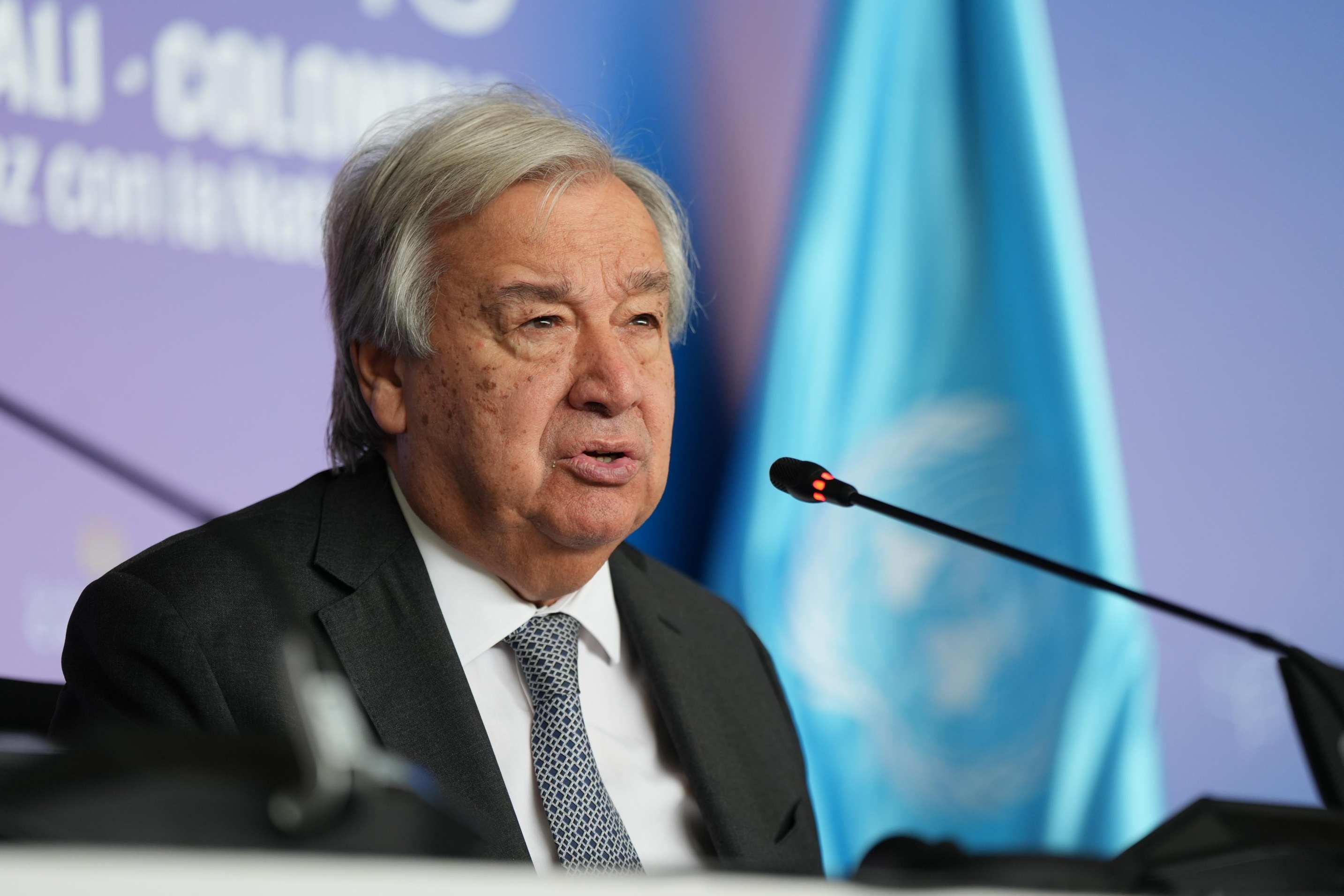UN Chief warns South Sudan faces a looming crisis amid peace deal collapse

United Nations Secretary-General Antonio Guterres has warned that South Sudan is on the verge of a major crisis, calling on the country’s leaders to step back from conflict and prioritize the well-being of its people.
Speaking on Friday, Guterres painted a grim picture of the deteriorating situation, saying the peace agreement meant to stabilize the country is falling apart.
“Let’s not mince words: What we are seeing is darkly reminiscent of the 2013 and 2016 civil wars, which killed 400,000 people,” Guterres said, emphasizing the urgent need for de-escalation.
His remarks come in the wake of the house arrest of First Vice President Riek Machar on Wednesday, a move that has effectively dismantled the 2018 peace deal that ended a five-year civil war.
The agreement had brought Machar and President Salva Kiir into a fragile power-sharing arrangement.
Machar and his wife, Angelina Teny, were placed under house arrest, a move that has further strained the country’s fragile stability.
This development comes amid weeks of escalating clashes between Machar’s forces and the South Sudan People's Defence Forces near Juba.
The situation worsened further on Friday when South Sudan’s information minister accused Machar of attempting to launch a rebellion against the government.
Guterres warned that the country faces a combination of crises, including heightened security threats, political turmoil, economic collapse, and a worsening humanitarian situation.
“All the dark clouds of a perfect storm have descended upon the people of the world's newest country – and one of the poorest,” he said.
He highlighted the impact of ethnic and political targeting by security forces alongside the growing spread of misinformation on social media, warning that such conditions could trigger further violence.
The Secretary-General urged South Sudan’s leaders to end political confrontations, release detained military and civilian officials, and restore the Government of National Unity.
He also cautioned that the broader Horn of Africa region is already in turmoil and cannot withstand another major conflict, stressing the need for immediate intervention.
Guterres described an escalating security emergency, marked by intensified clashes, aerial bombings targeting civilians, and the presence of external forces.
He warned that the collapse of the peace deal has worsened the humanitarian crisis, with three out of four South Sudanese now in need of aid.
Food insecurity has reached alarming levels, cholera outbreaks have been reported, and displacement is rising, with over a million refugees crossing into South Sudan from Sudan’s conflict zones.
Economic challenges are also mounting, with oil revenues declining and inflation soaring to 300 percent.
Funding for humanitarian and development programs has diminished, exacerbating the suffering of the population.
The UN Mission in South Sudan (UNMISS) is making efforts to ease tensions and protect civilians, but Guterres acknowledged that operational constraints limit its ability to respond effectively.
He urged the country’s leadership to fulfill their commitments under the peace agreement, stressing that it remains the only legal framework for peaceful elections scheduled for December 2026.
“Now more than ever, the leaders of South Sudan must hear a clear, unified, and resounding message. Put down the weapons, put all the people of South Sudan first,” Guterres said.
He also called on the regional and international community to stand together in support of the peace process and resist any attempts to undermine it.
Guterres disclosed that he had spoken with the African Union (AU) Commission Chairperson earlier in the day and fully backed the AU’s initiative to deploy the Panel of the Wise to mediate the crisis.
“We fully support the AU initiative to deploy the Panel of the Wise, as well as the efforts of the special envoy of Kenya, and we will be working in close cooperation with the AU and IGAD,” he stated.
Reflecting on his past interactions with South Sudanese refugees, Guterres expressed deep concern over their ongoing suffering and unfulfilled aspirations.
“They had such enormous hopes and aspirations, but unfortunately, not the leadership they deserve,” he said.
Regional leaders and organizations have been calling for restraint and efforts to de-escalate tensions.
On Thursday, Kenya’s President held a phone conversation with South Sudan’s President Salva Kiir following reports of Machar’s detention.
He later announced that he was sending a special envoy to South Sudan to help ease tensions.
After consulting with Uganda’s President Yoweri Museveni and Ethiopia’s Prime Minister Abiy Ahmed, Kenya’s President appointed former Prime Minister Raila Odinga as the Special Envoy to South Sudan.
Odinga expressed optimism that the crisis could be resolved peacefully.
Following a meeting with President Kiir in Juba on Friday, Odinga said he was encouraged by the possibility of a resolution to the conflict.
“I will be briefing other regional leaders and Kenya’s President on my mission and a possible roadmap to sustainable peace and stability,” he stated.
The unfolding crisis has raised concerns across the region, with leaders and international organizations closely monitoring the situation.
Guterres’ warning signals the urgency of immediate action to prevent South Sudan from descending into another devastating conflict.
